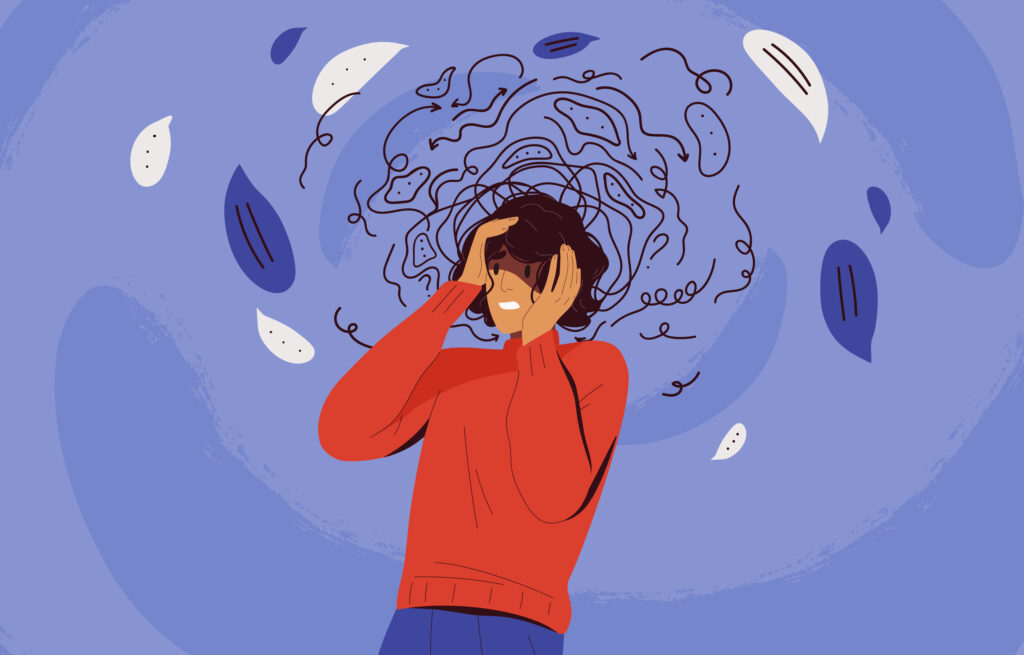Post-traumatic stress disorder (PTSD) and obsessive-compulsive disorder (OCD) are two mental health conditions that are often misunderstood. Many people think of them as completely different disorders when in reality, they have a lot in common. In this blog post, we will discuss the similarities between PTSD and OCD, as well as the differences. We will also explore how these two disorders can impact someone’s life. If you or someone you know is struggling with PTSD or OCD, please seek help! There is no shame in seeking assistance from a professional.
Contents
What Is PTSD?
PTSD is a mental health condition that can develop after a person has been exposed to an extremely traumatic event, such as war, physical or sexual assault, or a natural disaster. Symptoms of PTSD include flashbacks, nightmares, and difficulty sleeping, as well as intense feelings of fear and anxiety.
PTSD is typically treated with a combination of psychotherapy and medications. Cognitive behavioral therapy (CBT) is the most common form of psychotherapy used to treat PTSD, as it helps people learn how to cope better with their symptoms.
What Is OCD?
OCD is an anxiety disorder characterized by intrusive thoughts that lead to compulsive behaviors such as checking, counting, or cleaning. People with OCD often feel compelled to complete certain rituals to reduce their anxious feelings and gain some relief from their intrusive thoughts.
Treatment for OCD usually involves cognitive-behavioral therapy along with medication such as antidepressants or anti-anxiety medications. This treatment approach combines tools to manage the person’s behavior while also addressing underlying thought patterns that drive the behaviors.
PTSD and OCD: Two Sides of the Same Coin

Though PTSD and OCD are two very different mental health conditions, they also have some similarities. Both conditions involve intrusive thoughts that can be difficult to control and lead to compulsive behaviors. Additionally, both disorders respond well to similar treatment approaches of psychotherapy and medications.
However, it is important to note that while these two conditions have commonalities, they are not the same. Each condition requires its unique approach when it comes to diagnosis and treatment, as the underlying causes of each are very different. It is important for people experiencing either disorder to seek professional help to find relief from their symptoms.
The ability to recognize the similarities and differences between PTSD and OCD is essential to understanding how to respond to and treat each disorder.
Similarities Between PTSD And OCD
The psychological disorders of Post-Traumatic Stress Disorder (PTSD) and Obsessive Compulsive Disorder (OCD) can appear to be two completely different psychological challenges, yet they have a lot in common.
Both PTSD and OCD are characterized by intrusive thoughts and memories that can cause an individual to experience high levels of anxiety. In the case of PTSD, these intrusive thoughts may center around a traumatic event or events in the past that cause feeling of terror, helplessness, and horror. In contrast, with OCD, intrusive thoughts are often focused on irrational worries or fears that often involve contamination or illness.
Another key similarity between PTSD and OCD is the presence of persistent avoidance behaviors. With PTSD, individuals typically avoid certain situations, activities, and/or people that remind them of the traumatic event. With OCD, individuals often develop rituals or behaviors to reduce their anxiety associated with obsessive thoughts.
Finally, both PTSD and OCD can lead to significant distress and impairment in an individual’s social functioning, occupational performance, and general quality of life. As a result, it is important for those who suffer from either disorder to seek help from mental health professionals so they can begin managing their symptoms more effectively.
Ultimately, PTSD and OCD are two psychological disorders that have much common ground but also some important differences in terms of the experiences that drive each one. By recognizing these similarities and differences between the two disorders, individuals may be able to better understand what they are going through and take the necessary steps to seek help and treatment.
Differences Between PTSD And OCD

There are several differences between post-traumatic stress disorder (PTSD) and obsessive-compulsive disorder (OCD). While both conditions can be debilitating, the treatment goals and approaches are quite different.
The most obvious difference is that PTSD is usually a response to extreme trauma such as combat, physical or sexual abuse, or a natural disaster. In contrast, OCD symptoms often appear without any external trigger or traumatic event. This distinction means that PTSD is considered an anxiety disorder while OCD is classified as an obsessive-compulsive disorder.
Another key difference between the two conditions is how they manifest in individuals. People with PTSD tend to experience intrusive thoughts or flashbacks related to their trauma, along with hyperarousal and emotional numbing. Individuals with OCD, on the other hand, may experience obsessions and compulsions that are not necessarily related to a traumatic event.
Finally, the treatment goals for each condition vary greatly. For PTSD, the goal of treatment is often to reduce symptoms by addressing the trauma that caused them. Cognitive Behavior Therapy (CBT) and Eye Movement Desensitization and Reprocessing (EMDR) are two common approaches used in treating PTSD. On the other hand, treatment for OCD typically focuses on reducing obsessive thoughts or behaviors through exposure and response prevention (ERP). In some cases, medication can help manage symptoms as well.
Although there are distinct differences between PTSD and OCD, it is important to remember that both conditions can be severe and require professional help. It is important to seek the advice of a mental health professional who can help you create a treatment plan that is tailored to your individual needs. With the right support and resources, people with PTSD or OCD can lead fulfilling lives.
Conclusion
PTSD and OCD are two mental health conditions that can have a major impact on a person’s life. While the symptoms and treatments may vary, both PTSD and OCD result in anxiety, distress, and disruption to daily functioning. Ultimately, individuals need to seek professional help when dealing with either condition as early intervention can make a world of difference in recovery success. With the right support system and treatment plan, those living with PTSD or OCD can create an environment where their mental health is supported and their quality of life is improved.
With a better understanding of how these two conditions interact with one another comes more effective treatments that will benefit those struggling with either or both disorders. By recognizing that PTSD and OCD often share common features, we can develop approaches to better support those who are suffering and build resilience in the face of adversity.
For more information and guidance, please contact OCDMantra. OCD is a mental health disorder characterized by obsessions and compulsions. If you have any queries regarding OCD treatment, ERP therapy experienced therapists at OCDMantra can help: Book a trial OD therapy session.


